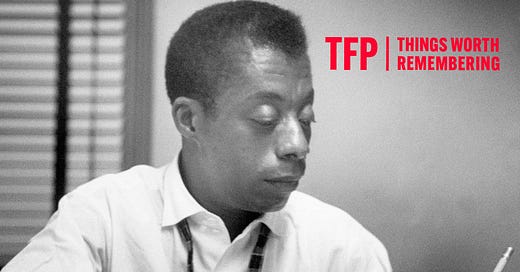
Welcome to Douglas Murray’s column, Things Worth Remembering, in which he presents great speeches from famous orators we should commit to heart. To listen to James Baldwin’s speech during his debate with William F. Buckley at the Cambridge Union in 1965, scroll to the end of this piece.
In his Art of Rhetoric, Aristotle listed three types of rhetorical appeal: ethos, logos, and pathos.
By “ethos,” Aristotle meant the orator’s credibility. We have all asked of a speaker: “What right does this person have to speak on this topic?” It’s a fair question. If a person is supremely credible to speak on a subject, then it is nearly impossible for that speaker to be countered.
I can think of few examples of this being demonstrated so clearly as in a famous televised debate that took place at the Cambridge Union in February 1965.
The debate brought together two of the finest writer-speaker-thinkers of their era: James Baldwin and William F. Buckley. The motion before the house was: “The American dream is at the expense of the American Negro.”
It came at an extraordinarily pertinent time. The civil rights movement was well underway, though the Voting Rights Act had not yet been passed.
Buckley had opposed much of the legislation of the era, and emphasized a gradualist approach to America’s injustices.
Baldwin came with two advantages, which were that the moral arc of history (if such a thing does exist) was already bending his way, and he had a controlled, furious mastery of his subject.



